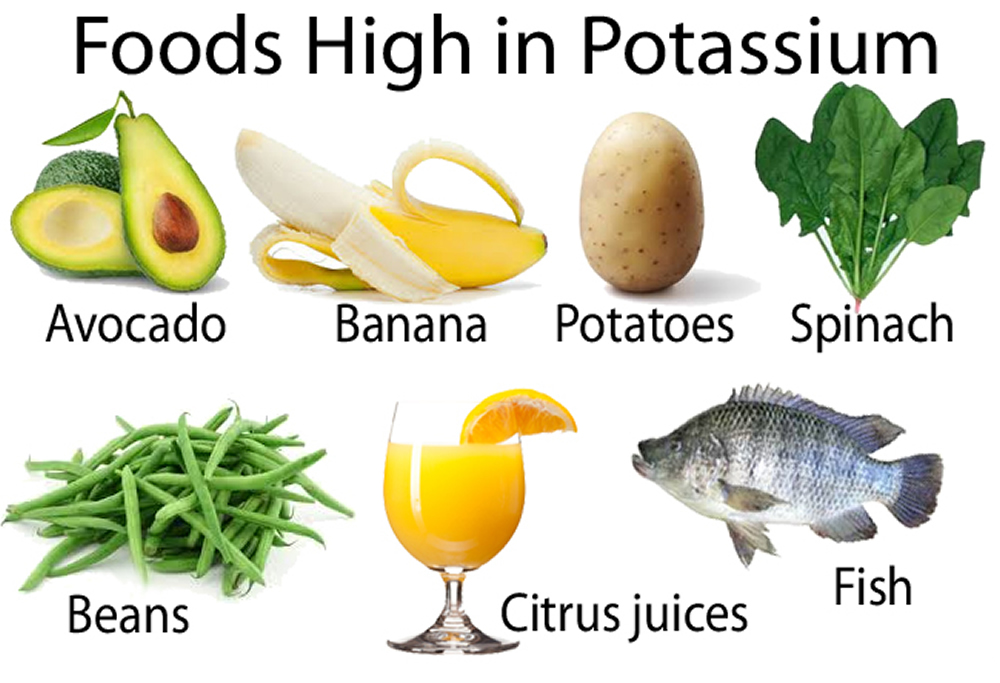High-Potassium Foods to Maintain Normal Blood Pressure
High blood pressure, also known as hypertension, is a common health problem that affects millions of people worldwide. It can lead to several serious health issues such as heart disease, stroke, and kidney failure. One effective way to manage blood pressure is through diet. Consuming foods that are rich in potassium can help regulate blood pressure levels. In this article, we will discuss high-potassium foods that can help maintain normal blood pressure levels.

What is potassium?
Potassium is an essential mineral that plays a crucial role in the body. It helps regulate fluid balance, muscle contractions, and nerve signals. Potassium also helps counteract the negative effects of sodium on blood pressure levels.
High-Potassium Foods
Here are some high-potassium foods that can be included in a healthy diet:
1. Sweet Potatoes
Sweet potatoes are a great source of potassium, fiber, and vitamins. One medium-sized sweet potato contains around 542mg of potassium.
2. Spinach
Spinach is a leafy green vegetable that is packed with nutrients, including potassium. One cup of cooked spinach contains around 840mg of potassium.

3. Avocado
Avocado is a delicious and nutritious fruit that is rich in potassium, healthy fats, and fiber. One medium-sized avocado contains around 708mg of potassium.

4. Bananas
Bananas are a popular fruit that is rich in potassium. One medium-sized banana contains around 400mg of potassium.

5. Yogurt
Yogurt is a healthy and delicious dairy product that is a good source of calcium, protein, and potassium. One cup of plain, low-fat yogurt contains around 573mg of potassium.

How to incorporate high-potassium foods into your diet
There are many delicious and easy ways to add high-potassium foods to your diet. Here are some ideas:
- Add sliced bananas to your breakfast cereal or oatmeal
- Make a sweet potato and spinach salad
- Enjoy a bowl of yogurt with fresh fruit and nuts
- Include avocado in your favorite sandwich or wrap
- Make a banana smoothie with yogurt and honey
The benefits and drawbacks of a high-potassium diet
A high-potassium diet can have several benefits, including:
- Lowering blood pressure
- Reducing the risk of stroke
- Lowering the risk of heart disease
- Improving bone health
However, consuming too much potassium can have drawbacks, including:
- Increased risk of hyperkalemia, a condition where there is too much potassium in the blood
- Interference with certain medications, such as ACE inhibitors and potassium-sparing diuretics
FAQ
1. How much potassium should I consume daily?
The recommended daily intake of potassium for adults is 2,500-3,000mg.
2. What are the symptoms of hyperkalemia?
The symptoms of hyperkalemia include muscle weakness, fatigue, and irregular heartbeat.
3. Can I consume too much potassium?
Yes, consuming too much potassium can lead to hyperkalemia.
4. What are some other sources of potassium?
Other sources of potassium include white beans, salmon, mushrooms, and bananas.
Conclusion
Incorporating high-potassium foods into your diet can be an effective way to manage blood pressure levels and improve overall health. However, it is important to consume potassium in moderation and consult with a healthcare professional if you have any concerns.
